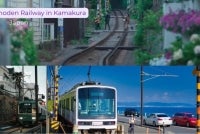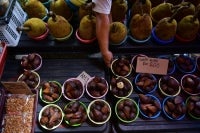Malaysians' purchasing power better in Thailand than in own country
FARAH SHAZWANI ALI
SHAH ALAM - Thailand strategically leverages its agricultural and seafood production to attract Malaysian tourists with lower prices.
Universiti Putra Malaysia School of Business and Economics economist and Professor Dr. Law Siong Hook said Thailand has good marine resources and agricultural products such as fruits and vegetables that allow traders to sell them at cheaper prices.
"Demand from tourists is high because one of the attraction factors is food and a variety of delicious and cheap desserts.
"It is true, for only RM200 tourists can get luxurious and delicious food.
"There are hotels that offer lunch buffet options priced between RM25 and RM30, presenting a cost-effective alternative compared to Malaysia," Siong Hook said.
He added the cost of transportation to neighbouring countries was lower and easily accessible using transportation such as cars, trains and airplanes, compared to some tourist locations in the country.
"These factors attract tourists and further encourage them to spend and benefit entrepreneurs involved in this industry.
"Thailand's capital, Bangkok itself, is one of the top destinations receiving visits from foreign tourists," he told Sinar.
Law added those factors caused many citizens of this country to travel to Thailand.
He said some Malaysians choose another alternative which was to go north and not to the south because the currency exchange rate was high compared to the ringgit in Singapore.
"The offer of accommodation in Hatyai is already available and it is close to the Malaysian border.
"For residents of states bordering Thailand, they can apply for a border pass without the need for a passport.
"It is convenient to cross national borders and the cost of a border pass is lower compared to a passport.
"Another factor is that they want to visit cultural places that are not the same as Malaysia and have different hospitality.
"Language also plays an important role where citizens of both countries can also communicate in Hatyai and it is not a barrier for Malaysians to go there," he added.
However, Law said that if the situation continues, the source of income of entrepreneurs involved in the tourism industry would be directly affected, further affecting the national economy.
He highlighted the demand for Thai baht when tourists go to Thailand would also affect the ringgit exchange rate.
"When they spend in Thailand, the national currency will flow out.
"The baht became stronger against the ringgit due to demand for the Thai currency.
"So, Malaysians should consider local tourism destinations that have yet to be fully explored.
"There are many interesting places and homestays that offer reasonable prices.
"If traveling within the country, it can boost the country's economic growth and help entrepreneurs involved in the tourism industry.
"Tourism companies also need to negotiate to get cheaper packages and tourists need to plan ahead so that ticket and hotel prices are also cheaper," Law said.
Download Sinar Daily application.Click Here!














